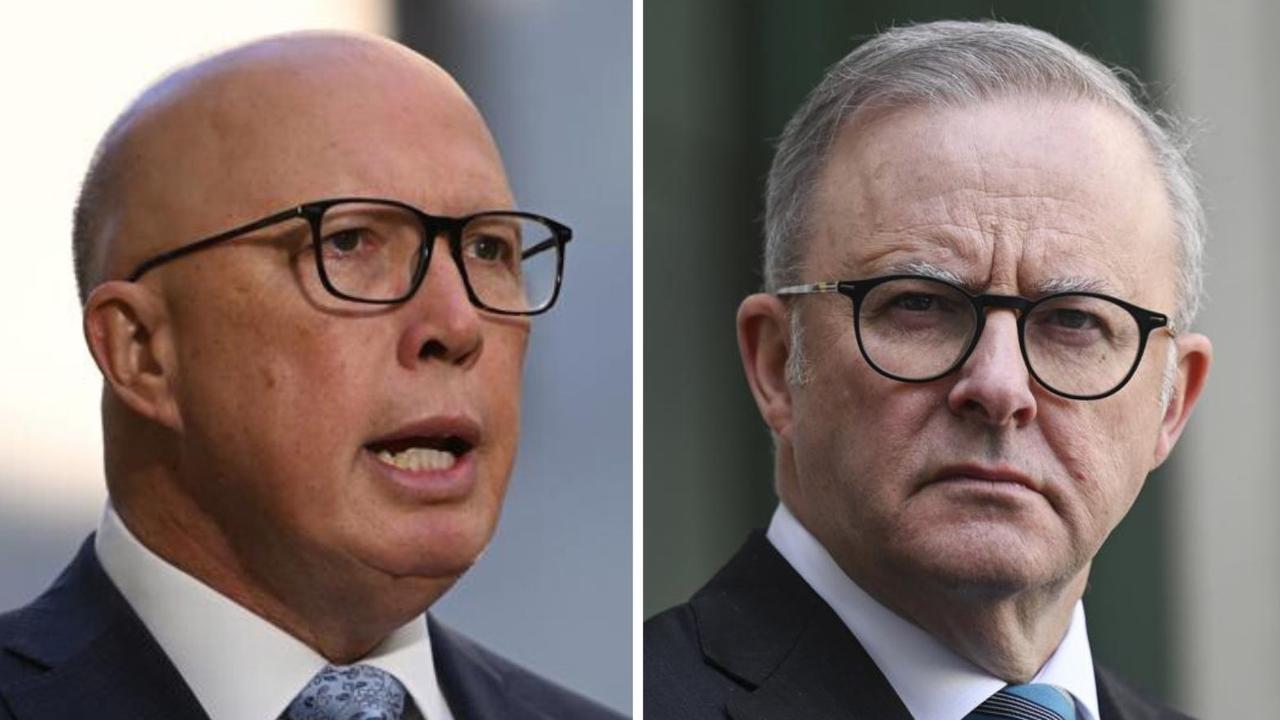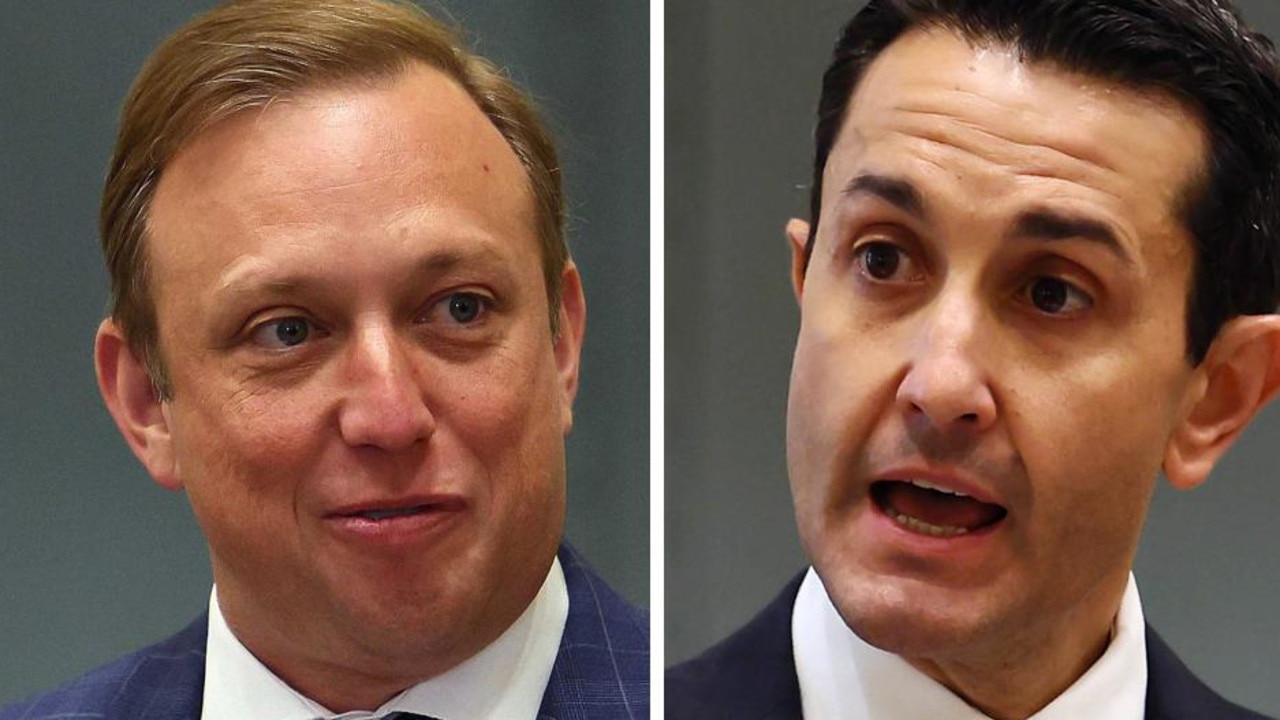Meet Jair Bolsonaro, Brazil’s far-right answer to Donald Trump
JAIR Bolsonaro is one of the world’s most controversial politicians. Now, the man often referred to as “the new Donald Trump” is about to shake things up.
HE’S one of the world’s most controversial politicians, but Jair Bolsonaro is already counting his victories in Brazil’s election.
The far-right populist leader has today emerged victorious in the country’s first round, with 46 per cent of votes — just short of the 50 per cent majority required to avoid a second-round run-off.
With his conservative politics, prominent use of social media and long list of discriminatory remarks, it’s no surprise many have compared the Brazilian figure to US President Donald Trump.
At a rally last week, his son Eduardo Bolsonaro even said: “It’s going to be beautiful. It will be just like Trump in the United States.”
So who exactly is Jair Bolsonaro, and why is he causing such a stir?
RISE OF BRAZIL’S MOST POLARISING POLLIE
Mr Bolsonaro is a divisive figure.
Among his supporters, he’s seen as the answer to an economy on the verge of financial crisis, a string of political corruption scandals and rampant violence under the 14-year rule of the Workers’ Party.
Critics say he has the support of religious empires and Brazil’s wealthy elite men. He will also win favour among those who are simply fed up with the country’s troubled political system.
They also believe his tough-on-crime stance will be the antidote needed to quell the country’s soaring rates of homicide and violence.
Progressives, on the other hand, can’t stand him. Mr Bolsonaro has been a vocal opponent of numerous liberal causes including same-sex marriage, abortion and immigration. He supports torture and the death penalty. On economic policy, he supports privatisation and the free market.
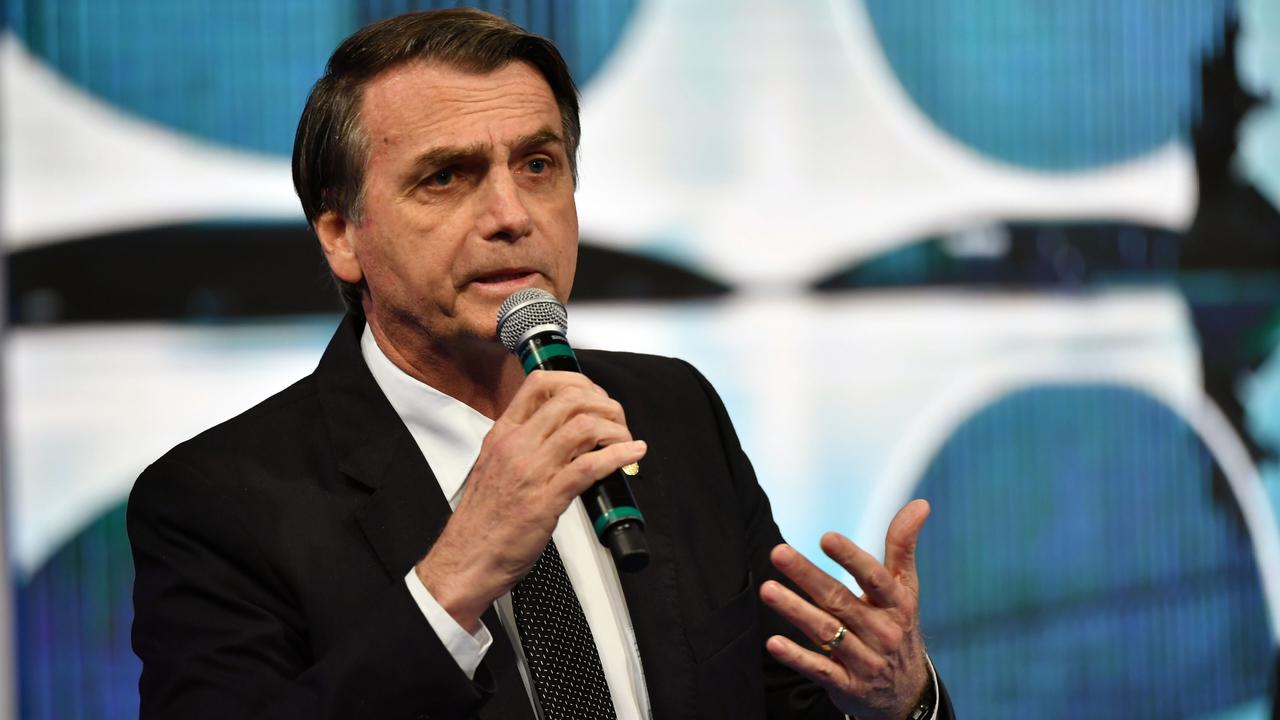
In the lead-up to the election, Brazilian journalist Eliane Brum penned a now-viral opinion piece describing the Brazilian leader as “a homophobic, misogynist, racist ‘thing’”.
She explained that many people in Brazil can’t even bring themselves to use his name, so they often simply refer to him as “the thing”.
Brum drew a connection between Mr Bolsonaro and Carlos Alberto Brilhante Ustra, who was a colonel in the Brazilian army during its years under a brutal military dictatorship.
“By celebrating Ustra, Bolsonaro has rekindled the horror of that period,” Brum wrote. “And he can do it only because Brazil has never punished those who tortured, kidnapped and killed in the name of the state.
“Bolsonaro is the monstrous product of Brazilian democracy’s silence about the crimes committed by its former dictatorship.”
She argues that Brazil under Mr Bolsonaro will regress back to a darker age.
“During the first decade of this century, Brazil appeared to be a country that was finally reaching for the future. Now it seems mired in the past.
“The violence of this election has plunged Brazilians into a kind of collective convulsion.”
BOLSONARO’S MOST CONTROVERSIAL STATEMENTS
With a long list of controversial public statements under his belt, you might think Mr Bolsonaro took a leaf out of Donald Trump’s book — using outrageous remarks as a self-marketing tool.
He’s certainly embraced social media as a publicity tool the same way the US President did, with more than 10 million followers over several platforms.
But the Brazilian politician’s crude remarks directed at women, black people and the LGBT community date back well before Mr Trump’s rise to the White House.
Here’s a breakdown of his track record:
On women:
Over the past few months, millions of Brazilian women have declared an online war against Mr Bolsonaro, using the hashtag #EleNão — “Not Him”.
In August, 36-year-old advertising executive Ludmila Teixeira created a Facebook page called Women United Against Bolsonaro. The page, which only accepts female members, now has almost four million of them, according to Reuters.
The protests stem from a string of sexist remarks Mr Bolsonaro has made in recent years.
In 2015, Mr Bolsonaro infamously told female Congress representative Maria do Rosario: “I wouldn’t rape you because you’re not worthy of it.”
He later uploaded footage of the exchange to Twitter, describing it as “putting do Rosario in her place”.
In 2016, he told TV presenter Luciana Gimenez he wouldn’t employ a woman “with the same salary as a man” because women get pregnant.
He later attempted to backtrack, saying the law “already guarantees equal pay for men and women”.
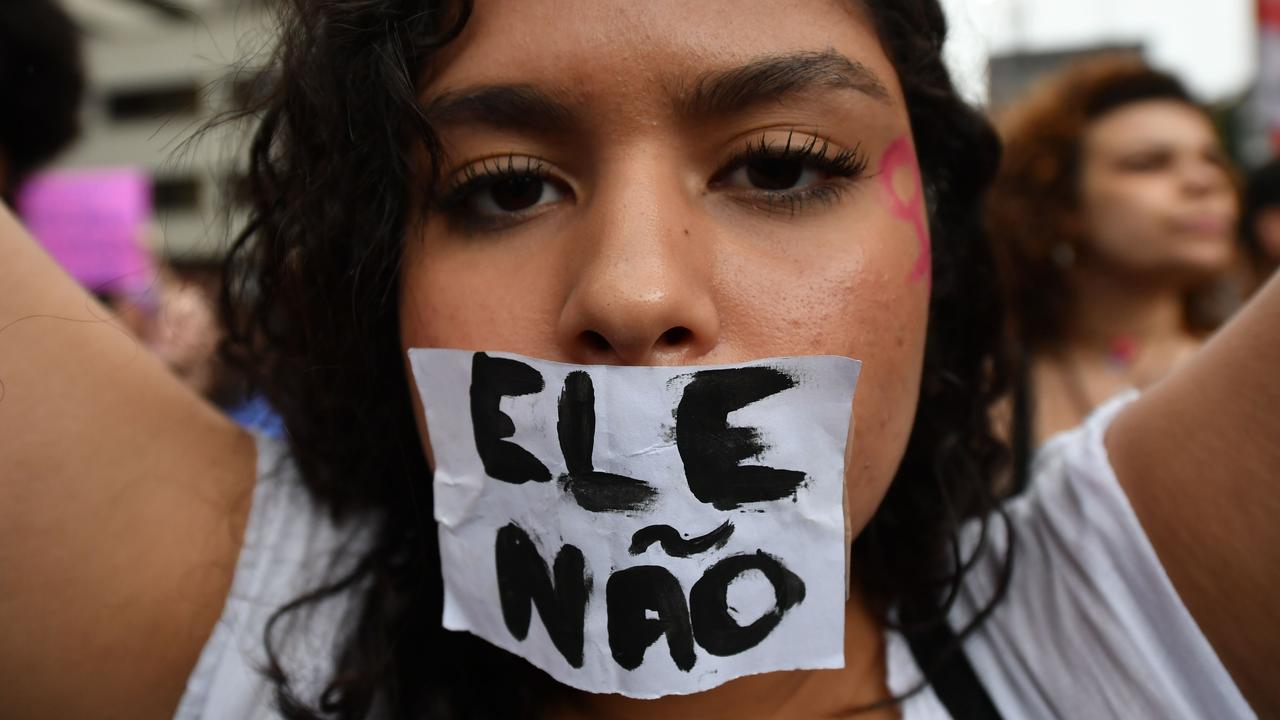
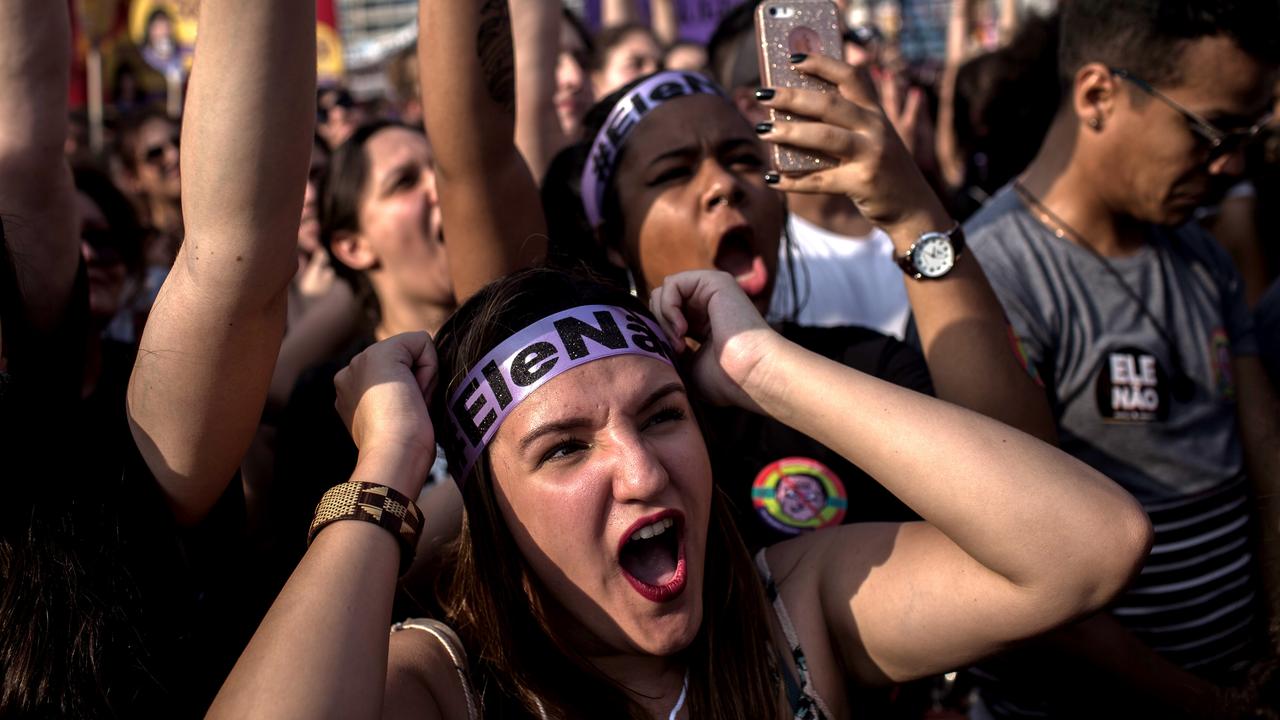
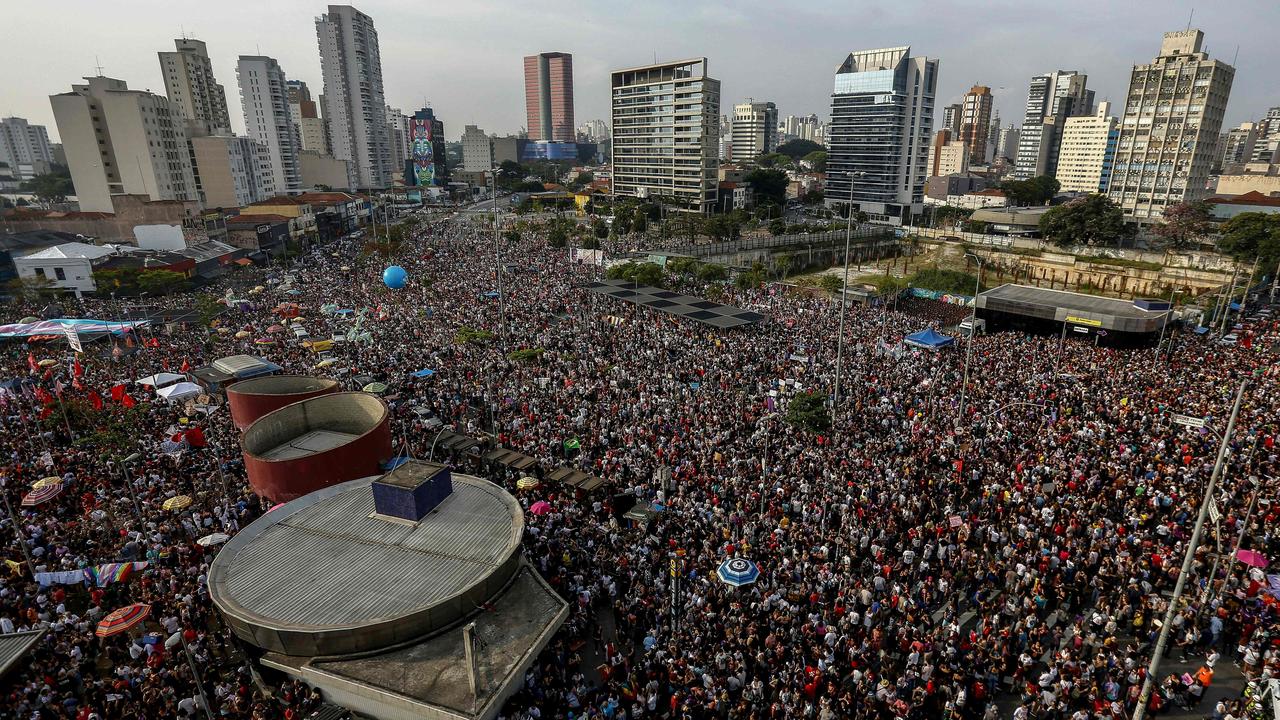
That same year, American actor Ellen Page interviewed Mr Bolsonaro for her Viceland documentary series Gaycation.
When Page — who happens to be gay — asked him whether he thought she should have been beaten as a child for her sexual orientation, he responded: “You’re very nice. If I were a cadet in the military academy and saw you on the street, I would whistle at you. All right? You’re very pretty.”
In 2017, he caused a public uproar while talking about his own daughter during a public event.
“I have five children. I had four boys, but then I had a moment of weakness, and the fifth was a girl.”
Despite the protests, The Atlantic noted many Brazilian women would be willing to shrug off these remarks, because they believe his promise for a new chapter in Brazil outweigh the criticism.
On the LGBT community:
On the surface, Brazil appears to embrace homosexuality — there is no law forbidding LGBT members from serving in the armed forces, and same-sex couples can legally marry and adopt children.
It’s also home to some of the most sexually liberal parties on the planet, such as Carnivale.
But there is a dark side. Brazil is frequently rated as the country where the most gay people are killed.
According to the country’s largest and most active gay organisation, Grupo Gay da Bahia, a member of the Brazilian LGBT community is murdered every two days due to homophobia.
In fact, according to LGBTQ Nation, nearly half the world’s anti-LGBT murders around the world occur in Brazil.
Mr Bolsonaro’s homophobic remarks extend back decades.
In 2002, he threatened gay people after then-president Fernando Henrique Cardoso was seen in a photo holding a rainbow flag at an event in support of gay marriage.
“I won’t fight against it nor discriminate, but if I see two men kissing each other on the street, I’ll beat them up,” he told local newspaper Fohla de S. Paulo.
In 2011, Mr Bolsonaro told Playboy magazine he would rather see his son “die in an accident” than be gay, saying he would be “incapable of loving a gay son”.
In the same interview, he said the presence of a gay couple at his house would cause its market value to depreciate.

In 2013, the government sought to pass a bill to outlaw homophobia and educate Brazilian youth on the damage it causes. Mr Bolsonaro publicly campaigned against the law.
According to America’s Quarterly, he compared same-sex marriage to paedophilia, and encouraged the physical abuse of children believed to be gay.
In a 2013 interview with Stephen Fry for the BBC program Out There, Mr Bolsonaro addressed the suggestion his comments could be fuelling anti-gay violence across the country.
“There are groups that want to use (gay hate crimes) as an example. It might not even have anything to do with homosexuality,” he said. “It is labelled as such by gay groups who want to make use of the incident and create a public sob story.”
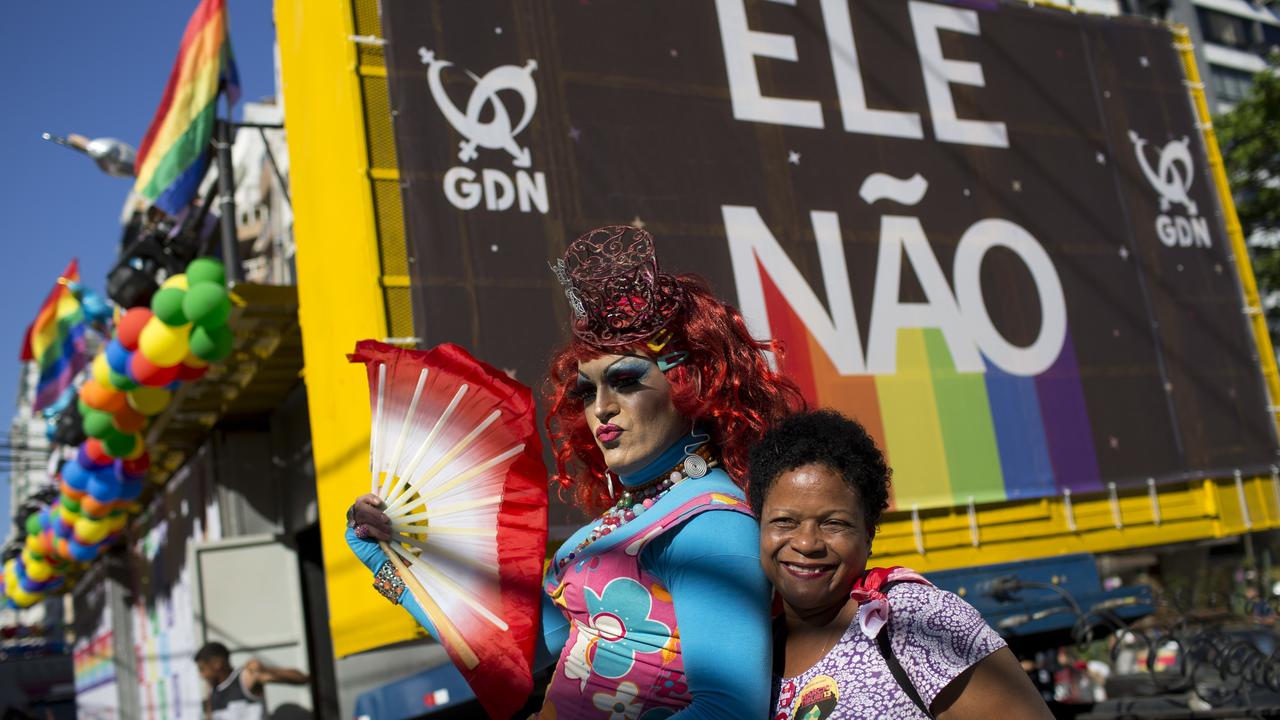
He also rejected the argument that Brazil has a problem with homophobic violence, claiming that 90 per cent of gay victims die “in places of drug use and prostitution, or are killed by their own partner”.
“I went into battle with the gays because the government proposed anti-homophobia for the junior grades,” Mr Bolsonaro said. “That would actively stimulate homosexuality in children from six years old.
“They want to reach our children in order to turn the children into gay adults to satisfy their sexuality in the future. These are the fundamentalist homosexual groups that are trying to take over society. This is not normal.”
He said Brazil was not ready to accept homosexuality as a social norm.
“No father would ever take pride in having a gay son. Pride? Happiness? Celebration if it turns out his son is gay? No way.”
Upon further questioning, he even compared his dislike for homosexuals to the public’s dislike of the Taliban.
In 2017, Mr Bolsonaro was ordered to pay a fine of $150,000 reais ($A55,404) for hate speech after stating there was “no risk” of his family producing a homosexual child, because his children were “well-educated”.
He made those comments to the CQC TV program in 2011.
On black people:
In the US, the far-right have largely targeted immigrants and racial minorities.
In Brazil, the sentiment is similar, but the target is different.
According to The Washington Post, the white upper-middle class is feeling threatened by the rise of a “largely black lower-middle class” with rising income.
Mr Bolsonaro has a history of racist remarks.
In 2011, Afro-Brazilian singer and actor Preta Gil asked him what he would do if his child fell in love with a black person.
He said he would “never allow this kind of promiscuity”, but added that his “children were very well-educated”, seeming to suggest educated people wouldn’t fall in love with black people.
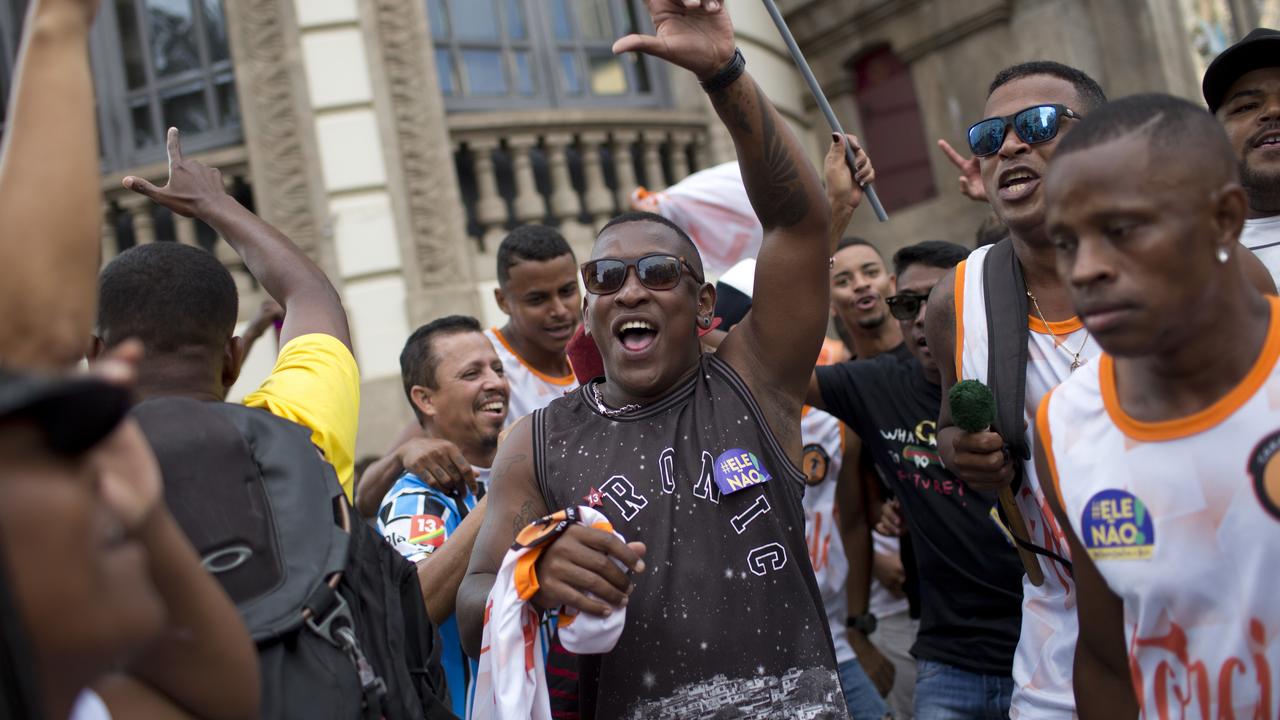
Gil threatened to sue him after the show.
“I am a strong black woman,” she said. “I will take it to the end against this racist, homophobic, disgusting deputy.”
A legal investigation was launched, in which Mr Bolsonaro claimed he didn’t understand the question. But things only got worse from there — he said his blunt answer was because he thought she was referring to gay people, not black people.
“If I were racist, I wouldn’t be so crazy as to declare it on television.”
In 2016, he appeared to mock the struggles of black people and other minorities. “This idea of oh poor little black person, oh poor little poor person, oh poor little woman, oh poor little indigenous person, everybody’s a poor little something!” he told Vice News. “I don’t try and please everybody.”
Earlier this year, Mr Bolsonaro said black people aren’t owed anything over slavery.
“What debt (of slavery)? I never enslaved anyone in my life,” he told TV Cultura. “Look, if you really look at history, the Portuguese didn’t even step foot in Africa. The blacks themselves turned over the slaves.”
WILL BOLSONARO WIN?
Mr Bolsonaro has no doubt had a successful entrance into Brazil’s election.
Today he took just under 47 per cent of the poll (he said “polling problems” had prevented him from winning outright) and will face a run-off on October 28 against Fernando Haddad, of the Workers’ Party, who took second place with 29 per cent.
It’s too soon to declare it an outright victory for Mr Bolsonaro, but he’s off to a promising start.
For many minority members in Brazil, that’s a scary thought.


